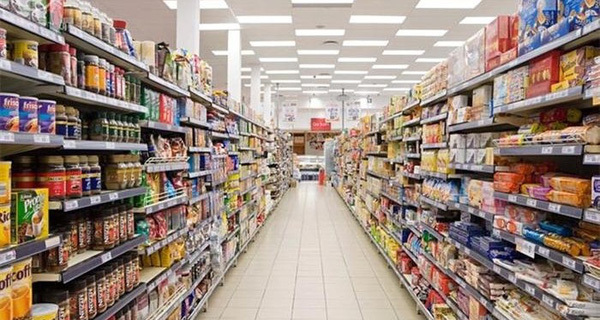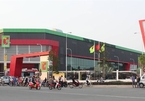Though Big C has promised to continue selling Vietnamese textile and garment products at its chain, the news about the ‘underground power’ of supermarkets remains hot.

N.N, a representative of B. business, said the move was unacceptable in terms of business behavior.
Small and medium enterprises have to spend VND5-10 billion to prepare for their next 6-month or yearly production plan, especially to buy input materials. Many of them have to borrow money from banks. Therefore, when Big C terminates contracts with enterprises, they lose money and will be at risk of going bankrupt.
|
Though Big C has promised to continue selling Vietnamese textile and garment products at its chain, the news about the ‘underground power’ of supermarkets remains hot. |
However, experts said the risk of Vietnamese enterprises losing the domestic market is more important. As foreign supermarkets, including Big C, require high discount rates, Vietnamese enterprises have to set selling prices 15-30 percent higher than usual to ensure profits, which will make Vietnamese goods less competitive than Thai goods.
Big C said that it had stopped collecting products temporarily while it considers developing new brands. However, NN said the argument is not clear.
“Big C has the right to choose suppliers, and it doesn’t make it clear about the criteria to choose suppliers,” NN said.
Her company’s products have been sold via Big C since 2005 with the value of VND7 billion a year. However, the company is no longer listed among the companies that Big C is considering to place orders.
“Is this because the company refuses to spend big money on some kinds of fees the supermarket wants?” she said.
At a meeting with garment companies at Doanh Nhan Sai Gon’s head office, Pham Binh An, director of the WTO Center HCMC, advised Vietnamese businesses to learn a lesson from the case, saying that relying on supermarkets as the only distribution channel would lead to serious consequences.
Foreign owned supermarkets, such as MM Mega Market, Big C, Aeon Mall and Lotte Mart set higher required discount rates than Vietnamese owned supermarkets such as Co-opmart and VinMart by 3-5 percent.
Pham Thi Thanh Tuyen from Saigon Co-op said the supermarket chain always sets reasonable discount rates and creates the most favorable conditions for small and medium suppliers to bring products to the supermarkets.
What Vietnamese retailers want now is for the state to offer preferences in interest rate and retail premises, so they can support Vietnamese manufacturers.
Le Khac Hiep, deputy chair of Vingroup, the owner of VinMart chain, said free trade agreements, plus the foreign investment wave both have put hard pressure not only on the domestic retail industry, but also on the local production.
Thanh Lich

Will a minimum proportion of Vietnamese goods be required at foreign supermarkets?
Some experts, warning that foreign retailers will give priority to distribute goods from their home countries, have suggested taking serious measures to ensure the availability of Vietnamese goods at foreign supermarkets.

Will Vietnamese products be dislodged from foreign-owned supermarkets?
If Vietnamese products are absent from large retail chains, domestic production will lose advantages in the home market, experts warn.
 Businesses have been told to make high-quality products to attract customers and use different distribution chains to optimize their profits.
Businesses have been told to make high-quality products to attract customers and use different distribution chains to optimize their profits.